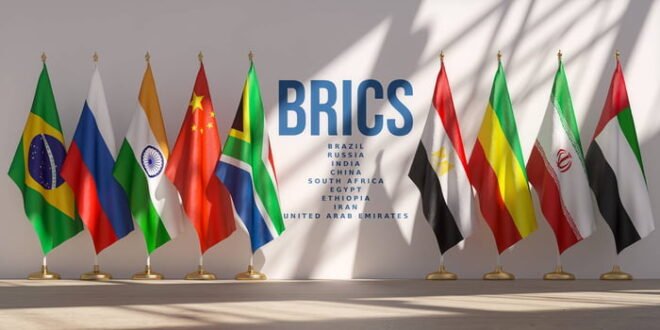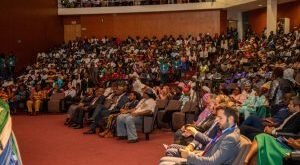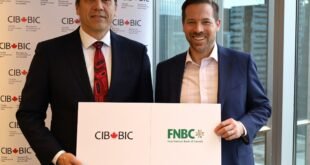The Evolution of BRICS and Its Global Impact
The BRICS group, comprising Brazil, Russia, India, China, and South Africa, has emerged as a significant geopolitical force. Since its inception, it has evolved into an informal alliance aiming to reshape the global order. This transformation reflects the ongoing shift from a rules-based unipolar world to a multipolar one, with BRICS playing a pivotal role in this transition.
Under Russia’s leadership in 2024, the group witnessed several notable activities. Despite Brazil’s internal challenges, it managed to implement innovative strategies and maintain robust multilateral collaborations. Brazil took over the presidency in July 2025, following its tenure during the BRICS Summit in Kazan, Tatarstan. This marked the first time the leadership duration was extended, resulting in more engaging programs and activities than under Brazil’s previous six-month term.
Russia assumed the chairmanship at Brazil’s request, which was supported by other members. The agreement was formalized through diplomatic notes, highlighting the collaborative nature of the group. During Russia’s tenure, significant developments included the expansion of BRICS to include Ethiopia, Egypt, Iran, and the United Arab Emirates, leading to the rebranding as BRICS+. Over 30 countries expressed interest in joining, signaling the group’s growing appeal.
Russia’s leadership emphasized multifaceted cooperation, including the development of a unified BRICS financial system and a new digital currency to challenge the US dollar. Despite some controversies, the group adopted a final declaration outlining its goals. However, Brazil’s presidency faced challenges due to internal economic and political hurdles, prompting a need for economic reforms and grassroots innovation to address these issues.
Brazil’s leadership transition is significant, as it rotates annually among member countries, ensuring equal representation and participation. The leadership change allows for shaping the agenda and priorities of the group. Brazil, like other BRICS members, has consistently advocated for ending dollar dominance and creating a single BRICS currency. President Luiz Inácio Lula da Silva has made changes to the group’s approach, focusing on equitable economic cooperation and sustainable development.
Under the theme “Strengthening Cooperation in the Global South for More Inclusive and Sustainable Governance,” Brazil pursued various activities within existing constraints. One key event was the BRICS+ Open Science Week, hosted from June 30 to July 7, focusing on themes such as food security, energy, healthcare, and space exploration. This event aligned with the federal project Popularization of Science and Technology of the Russian Federation State Programme.
BRICS aims to counteract the Western-dominated global order and promote a multipolar world. While many developing countries support this vision, they often remain engaged with Western institutions. Food security remains a critical issue for the Global South, with cooperation with non-Western countries seen as essential for stability. However, many developing countries are still embedded in multilateral financial networks like the IMF and World Bank.
Russia’s Foreign Minister Sergey Lavrov outlined a comprehensive future vision for BRICS, emphasizing mutual interests and equality. He also highlighted the establishment of a BRICS Pay system for settlements in national currencies, aiming to create a cross-border payment system and a unified mechanism for trade and economic information. Lavrov suggested a pause in further expansion to accommodate the new composition of BRICS.
At the Kazan summit, leaders emphasized expanding the membership of the New Development Bank (NDB), which has mobilized resources for infrastructure and sustainable development. Discussions at the St Petersburg International Economic Forum in June 2025 highlighted the NDB’s challenges and potential for growth. Russian President Vladimir Putin urged the bank to consider new financial systems and settlements in national currencies.
Established in 2015, the NDB has faced numerous challenges, particularly with geopolitical changes and economic hurdles. Despite these, it has financed approximately 120 projects worth $39 billion. The bank has expanded its membership, with Uzbekistan and Colombia joining, while Ethiopia and Indonesia are under consideration. Other institutions, including the World Bank, have expressed interest in collaborating with the NDB.
BRICS has grown significantly, representing nearly half of the world’s population and contributing about 40% of global GDP. Despite this, over 60% of BRICS members face high levels of poverty, underscoring the need for continued efforts to improve living standards. The group continues to attract Global South and Global East countries seeking mutually beneficial partnerships.
As the 17th BRICS summit in Rio de Janeiro approaches, hopes are high that the group will continue to contribute to collective efforts, with new leadership focusing on politics, economy, and cultural ties. The BRICS+ group is poised to uphold multilateralism and open new horizons for global cooperation.
 Info Malang Raya Its All About World News
Info Malang Raya Its All About World News




